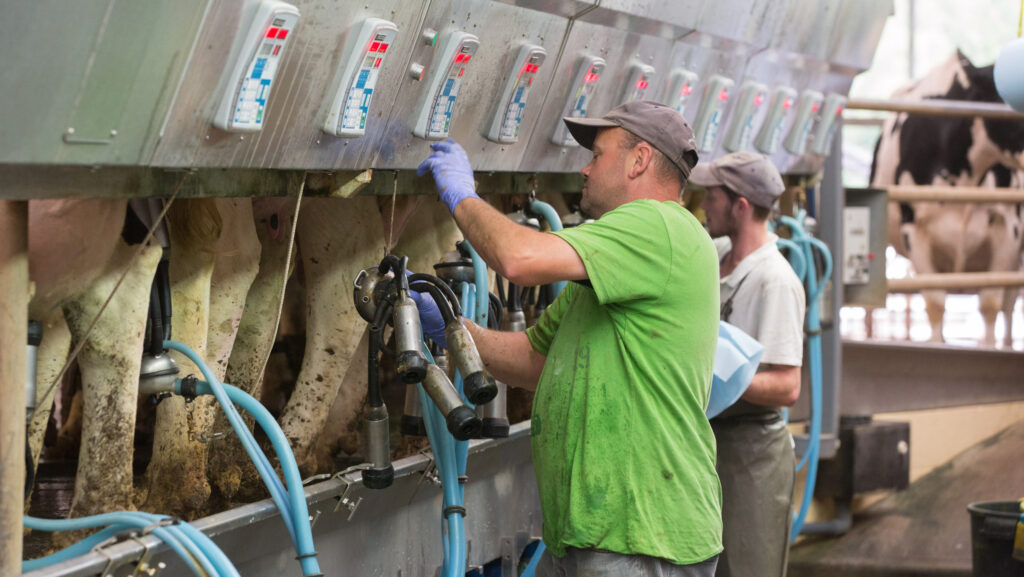Editor’s View: What’s the answer to farming’s labour problem?
 © Tim Scrivener
© Tim Scrivener Throughout much of recent farming history, at least one sector has always been fretting about attracting enough young people into the industry.
A glance through the archives reveals that in this week’s issue 60 years ago, farmers were fretting about the lack of skilled dairy labour, for example.
As a solution, one enterprising group of five farmers on the Isle of Wight had come together to form a “day-off syndicate” by jointly funding the employment of a relief milker.
See also: Advice for farm owners on employing a deputy
Fast-forward to the present day and we have a range of articles on the topic from a milk producer’s perspective in this week’s Dairy Update section, although much of the general advice holds true for all farming sectors.
There is so much to unpack in this debate over accessing workforce.
Plenty of farmers – such as Cornish dairy farmer Andrew Brewer – see the problem as one of marketing, with many schoolchildren not having farming as a career option on their radar.
Others – such as Harry Hickson – have worked hard to give employees a better-than-average work-life balance to help foster loyalty and avoid burnout.
Yet can we get to a situation whereby there is an abundance of applicants simply by improving farming’s reputation for being nice?
Part of the problem is that there is a shortage of workers in many parts of the economy, due to an ageing population and the pandemic-era trend of taking early retirement.
Part of the problem is that we are operating in a shrinking marketplace.
In the year 2000, there were 198,422 regular farm employees, salaried managers and casual workers in the UK, according to Defra figures.
That figure was 19% lower in 2024 – at 160,027 – meaning there are now fewer experienced employees to compete for.
And honourable employers notwithstanding, I suspect many businesses are putting pressure on each employee to do more and more as staff numbers dwindle, with productivity gains not taking up all of the slack.
That is one thing for a highly motivated farming-mad individual who is determined to make their way in this world, and quite another for those who care less about how they earn their daily bread.
Agriculture needs to attract both types – we cannot rely on enthusiasts alone.
Yet attracting the latter is perhaps also getting harder due to the rising wages for unskilled jobs, propelled upwards by near-continual hikes to the minimum wage.
Farming – a skilled job which often commands a skilled wage – is nonetheless seeing that premium shrink, a phenomenon which economists have termed wage compression.
Why, the argument goes, should you bother to earn a little more in farming if you don’t get to see your family as much as the barista down the road sees theirs?
Famed businessman Charlie Munger once said: “Perhaps the most important rule in management is ‘get the incentives right’.”
He liked to cite the example of a parcel company that could never get its employees to work fast enough on the night shift until they switched from paying them by the hour to paying them by the shift.
So does it come down to being nice? The answer is probably yes – if it’s the right kind of nice.

